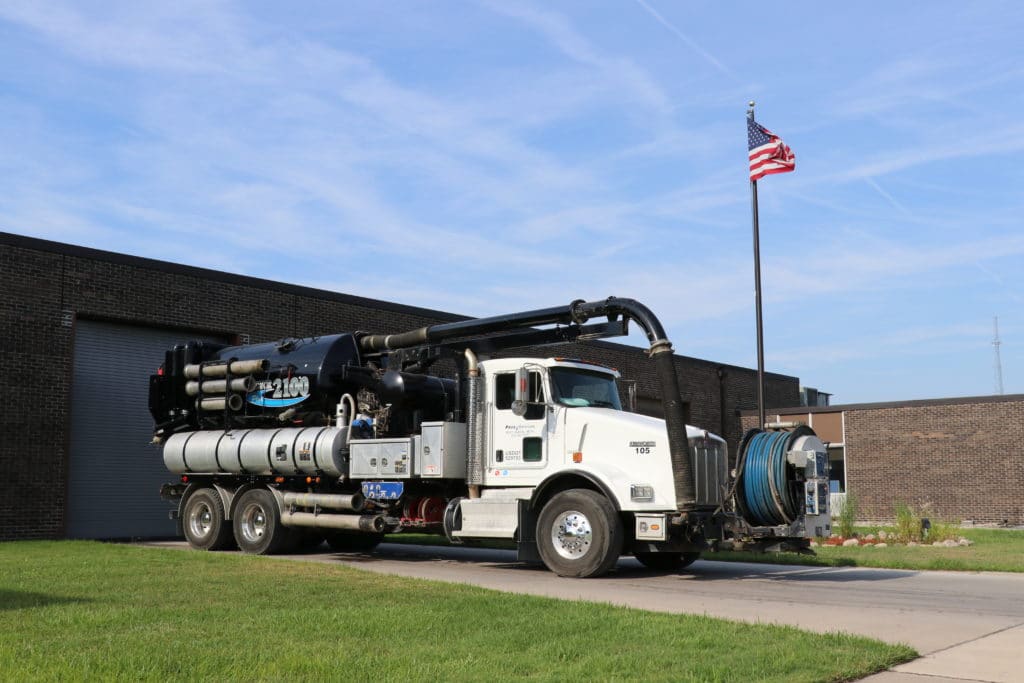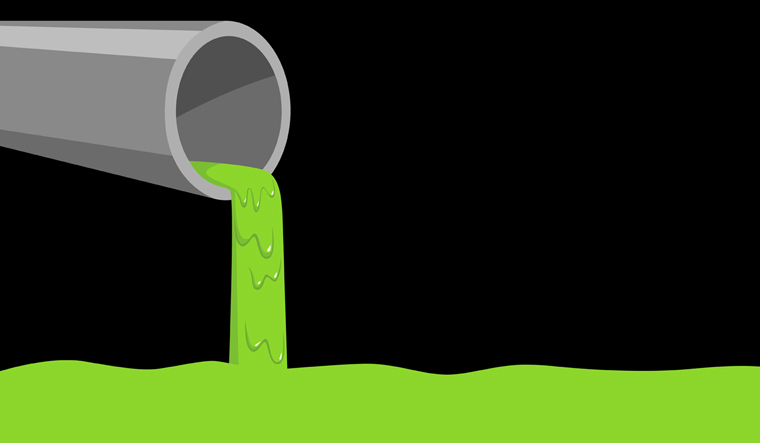Leading Liquid Waste Disposal Melbourne: Trusted Providers for Correct Waste Monitoring
Leading Liquid Waste Disposal Melbourne: Trusted Providers for Correct Waste Monitoring
Blog Article
Recognizing the Comprehensive Process of Fluid Garbage Disposal: Finest Practices and Environmental Effect Considerations
The administration of liquid waste disposal is a multifaceted issue that calls for an extensive understanding of different finest techniques and their linked ecological influences. From the kinds of liquid waste generated to the methods employed for collection, therapy, and last disposal, each step plays a crucial role in protecting ecosystems and public health and wellness. As regulatory requirements progress and technology advances, the discussion around these processes becomes significantly essential. What ramifications do these modifications hold for future sustainability initiatives, and just how can stakeholders make sure that they are properly resolved?
Sorts Of Fluid Waste
Understanding the different sorts of liquid waste is crucial for effective administration and disposal techniques. Liquid waste can be extensively classified right into several types, each calling for special handling and treatment strategies.
Industrial liquid waste typically has dangerous materials, including hefty metals, solvents, and chemicals, generated throughout manufacturing procedures. These wastes demand strict regulative conformity to shield human health and the atmosphere. Residential fluid waste largely describes wastewater created from families, consisting of sewage and greywater, which, although much less poisonous, can still pose considerable dangers if incorrectly taken care of.
Agricultural fluid waste, consisting of drainage from ranches, usually contains fertilizers and pesticides that can result in environmental degradation otherwise dealt with appropriately. Clinical fluid waste, created from medical care centers, consists of polluted fluids such as bodily fluids and chemicals, requiring specialized disposal approaches to prevent infection and ecological contamination.
Last but not least, oil and oil waste, commonly generated by dining establishments and automobile markets, can cause extreme clogs in drain systems if not managed correctly. Comprehending these categories facilitates targeted strategies for therapy, conformity with policies, and efficient disposal techniques, eventually advertising ecological sustainability and public health safety.

Collection Methods
Reliable collection techniques are important for the proper monitoring of liquid waste, ensuring that it is collected safely and successfully before therapy or disposal. Different strategies are utilized depending on the sort of liquid waste created, the volume, and the certain qualities of the waste.
One usual technique is making use of devoted collection containers or sumps, which are developed to record fluid waste at the source. These systems usually integrate pumps that promote the transfer of waste to larger storage space containers or therapy facilities. Furthermore, mobile collection devices geared up with vacuum cleaner technology are utilized in circumstances where waste is created intermittently or in hard-to-reach places.
For commercial setups, closed-loop systems can efficiently decrease spills and leaks, enabling for the recuperation and reuse of fluid waste. It is also necessary to educate personnel on proper collection procedures to minimize threats associated with dangerous compounds.
Moreover, applying routine maintenance routines for collection tools ensures optimal performance and safety. The integration of sophisticated tracking systems can improve collection performance by providing real-time data on waste levels and potential hazards. In general, effective collection methods are foundational to sustainable liquid waste management practices.
Treatment Processes
Therapy procedures play an essential duty in the monitoring of fluid waste, changing potentially dangerous materials into multiple-use sources or risk-free effluents - liquid waste disposal. These procedures can be generally classified right into physical, chemical, and biological methods, each customized to resolve details pollutants present in the waste stream
Physical treatment approaches, such as sedimentation and purification, work by removing put on hold solids and particle matter. These techniques are often moved here the initial step in the therapy chain, successfully decreasing the load on succeeding processes. Chemical treatments entail the use of reagents to reduce the effects of hazardous substances, speed up heavy steels, or oxidize organic pollutants, thus enhancing the security of the effluent.
Organic therapy procedures, consisting of activated sludge systems and anaerobic digestion, profit from the all-natural capabilities of microbes to deteriorate natural matter. These techniques are specifically efficient for wastewater having naturally More hints degradable toxins. Advanced treatment innovations, such as membrane layer filtration and advanced oxidation procedures, are significantly employed to achieve greater degrees of filtration.
Incorporating a combination of these therapy approaches not only makes certain conformity with governing standards but likewise advertises ecological sustainability by recouping valuable resources from liquid waste.
Disposal Options
Exactly how can companies make certain the responsible and risk-free disposal of fluid waste? Efficient disposal alternatives are essential for protecting public health and wellness and the setting. The key approaches consist of land therapy, incineration, and disposal adhered to by discharge right into metropolitan wastewater systems.
Land disposal entails the mindful control of fluid waste in marked garbage dumps, making certain that it does not leach right into surrounding soil or water. Incineration, on the other hand, subjects fluid waste to high temperatures, converting it right into ash and gases, which call for correct purification to decrease exhausts. This technique appropriates for contaminateds materials that can not be dealt with with conventional ways.
In cases where liquid waste can be dealt with, companies may opt for chemical or organic therapy procedures to reduce the effects of damaging elements before releasing the treated effluent right into community systems. This course commonly straightens with regulative requirements, ensuring that the effluent fulfills security standards.
Ultimately, companies need to conduct comprehensive assessments of each disposal alternative to identify its viability, taking into consideration aspects such as waste composition, governing compliance, and possible dangers to health and the setting. By selecting ideal disposal techniques, organizations can add to a responsible waste monitoring technique.
Ecological Impact
The ecological influence of liquid waste disposal is a vital consideration for organizations looking for to decrease their eco-friendly footprint. Additionally, the discharge of without treatment or improperly dealt with waste right into surface area waters can result in eutrophication, leading to oxygen deficiency and the succeeding fatality of fish and various other microorganisms.

To alleviate these effects, companies should embrace best practices such as implementing strenuous waste therapy procedures, promoting recycling and reuse, and adhering to governing criteria. By taking a positive method to liquid waste monitoring, entities can dramatically lower their environmental footprint while sustaining lasting development objectives. Ultimately, a comprehensive understanding of the ecological effects connected with liquid garbage disposal is vital for informed decision-making and liable stewardship of all-natural resources.
Verdict
Efficient management of fluid waste is important for protecting ecological integrity and public health and wellness. By adopting ideal techniques in disposal, therapy, and collection, alongside adherence to governing requirements, the possibility for dangerous contamination of environments can be significantly lowered. Continuous innovations in innovation and procedures add to lasting waste management efforts. Inevitably, an extensive understanding of fluid waste disposal not only minimizes environmental effects but likewise cultivates a commitment to accountable source management and environmental stewardship.
The administration of fluid waste disposal is a multifaceted issue that needs click a detailed understanding of various best practices and their connected environmental effects. From the kinds of fluid waste created to the approaches used for collection, therapy, and last disposal, each action plays a crucial role in protecting environments and public health and wellness.The ecological effect of liquid waste disposal is an essential factor to consider for companies looking for to decrease their eco-friendly impact. Inevitably, a thorough understanding of the ecological influences connected with liquid waste disposal is vital for notified decision-making and accountable stewardship of natural sources.
Inevitably, a thorough understanding of fluid waste disposal not only reduces environmental influences yet likewise fosters a commitment to liable source administration and environmental stewardship.
Report this page